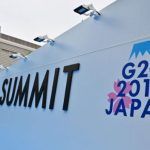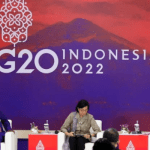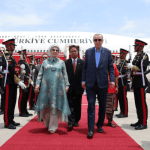The G20, often known as the Group of 20, officially welcomed the African Union on Saturday with unanimous support and at the invitation of Indian Prime Minister Narendra Modi, who is hosting the meeting.
Modi, who will face national elections the next year and has utilized the hosting rights for this year’s conference to enhance his reputation as an international statesman, has scored a significant diplomatic triumph with the expansion of the block.
India, a BRICS member, has been extremely outspoken about its key involvement of multi-alignment, retaining strategic autonomy, and not being boxed in any camp or coalition, while developing a multipolar world. This invitation comes at a time when these positions are important to India.
Comprised of 19 nations and the EU, Africa had only been marginally represented within the G20 through South Africa’s seat and AU permanent guest ship.
This admission is the first change since the conception of the group in 1999.
Before his opening speech, Modi greeted African Union chair and Comoros President Azali Assoumani with a warm hug.
Officially launched in 2002, the AU is a grouping of 55 African nations representing about 1.4 billion people and around 10% of the world’s economy.
According to American and European sources, an agreement in principle is also due to be signed at the G20 between the United States, Saudi Arabia represented by Crown Prince Mohammed Ben Slimane.
The United Arab Emirates, the EU and other G20 partners for a major sea and rail transport project crossing the Middle East to link India to Europe.
This project is likely to be a response to China’s New Silk Roads, whose President Xi Jinping is absent from New Delhi, as is his Russian counterpart Vladimir Putin.
The announcement also comes at a time when US President Joe Biden is working on a possible normalisation of relations between Israel (which could eventually join the project) and Saudi Arabia, following on from those with the United Arab Emirates, Bahrain and Morocco.
The G20 countries are likely to find it even harder to reach a consensus on geopolitical issues, notably the attitude to adopt towards Russia, or the climate.
These are issues with far-reaching consequences for developing countries, which are in the front line when it comes to extreme weather events linked to climate change, as well as food insecurity fuelled by the war in Ukraine, which is depressing grain prices.














